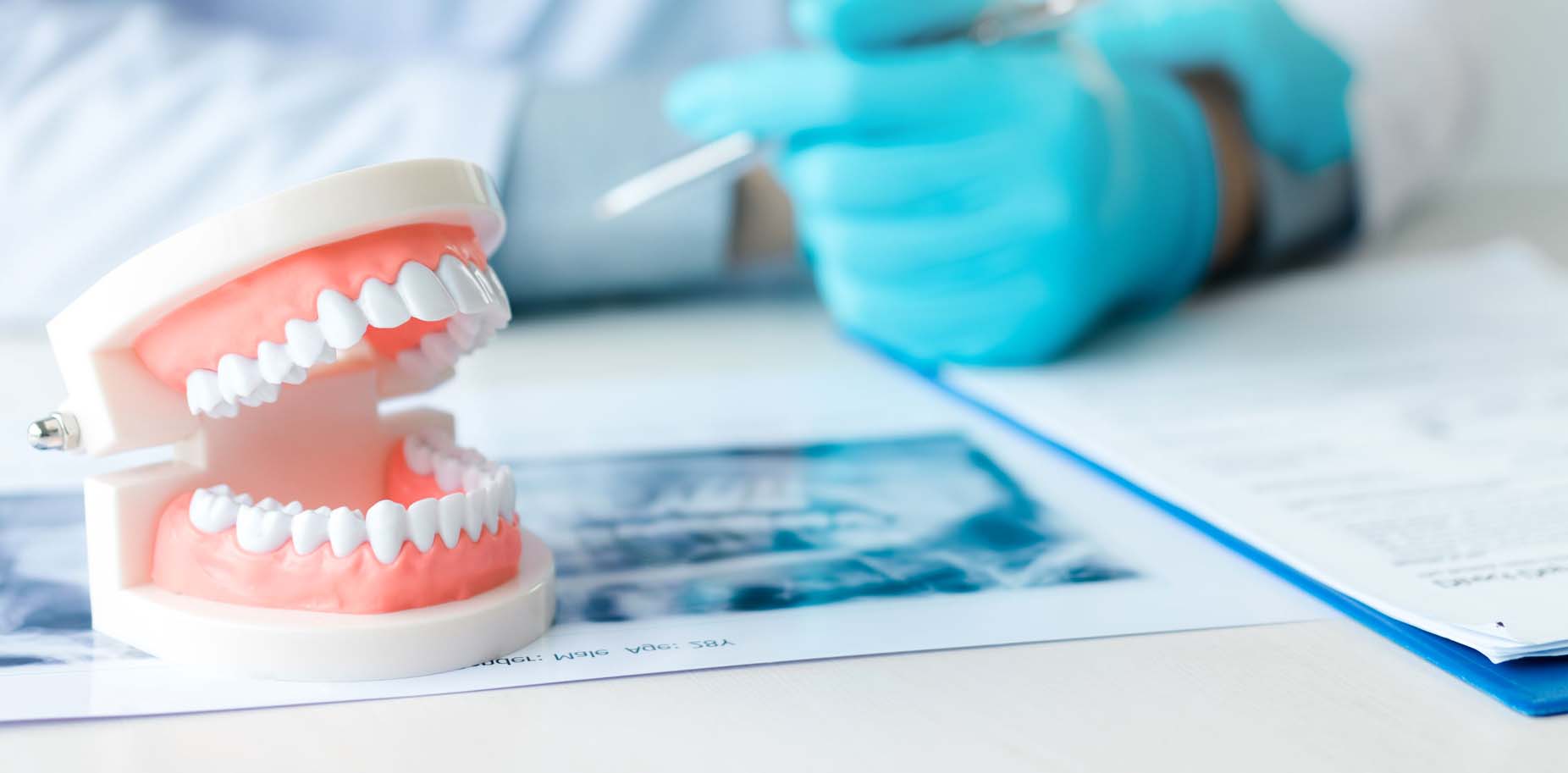What are Temporary Partial Dentures?
How Much Temporary Dentures Cost?
What are Permanent Dentures?
Dentures vs Dental Implants
The Procedure for Permanent Dentures
The Pros and Cons of Temporary Dentures vs. Permanent Dentures
When are Dentures Necessary?
What are Temporary Partial Dentures?
Numerous individuals have had teeth removed due to gum disease or decay. The appearance and function of your teeth can be corrected with permanent dentures. In this instance, the dentist will most likely recommend temporary or immediate dentures. You can wear these dentures for two to three months after you have had the necessary teeth removed. As soon as your natural teeth have been removed, the dentist will fit you with temporary partial dentures. The process begins before you have any teeth extracted. A bite impression is taken by the dentist. The shape, size and shade of your teeth are determined.
The dentist then measures your lower and upper jaw. An impression of the lower and upper arches of your mouth can then be completed. The dentist also uses your facial shape, lips and existing natural teeth for the creation of your temporary dentures. Prior to your extraction, temporary partial dentures will be created for immediate insertion. This is extremely beneficial if you have a history of sensitivity in your gums and teeth. This is because any sensitivity in your remaining teeth will not receive as much pressure while you are chewing. You will not have to be concerned about any missing teeth while your mouth is healing.
You will need to visit the dentist four to five times to ensure your temporary partial dentures are completed before your tooth extraction. The technique for making temporary dentures is the same as for permanent dentures. This difference is they are created before your extraction. Since you will not know exactly how your mouth will appear after your teeth have been removed, the measurements taken by the dentist are extremely important. The molds created for your partial permanent dentures are not made until your gum tissues have healed completely after your extraction.
You will need to allow between six and eight weeks for your new dentures to be made. As your mouth heals, your gum tissues will start to shrink. This will change the way your temporary dentures fit.
How Much Temporary Dentures Cost?
There is an additional cost for temporary dentures. When you try to figure out how much your immediate dentures will cost and how you will be paying for them, you must consider the different options available. Please refer to dentures cost in Los Angeles.
The majority of dentists offer some kind of financing to enable their patients to pay for anything considered major including dentures and tooth extractions. This enables you to make low monthly payments over time. Most dentists also accept major credit cards. You can simply ask your dentist’s office what options are available.
Once you have made the decision to get dentures, you can start putting money in a health care savings account or a flexible spending account. This will help you pay for your dentures. The cost of temporary dentures is higher than conventional dentures because they require a lot more time to prepare. The advantages make the additional cost worthwhile. The best benefit is you will not be seen in public with missing teeth after your extraction. As soon as your teeth have been removed your temporary dentures will be placed. The dentures will protect your gum tissue.
Temporary dentures will enable you to adjust your speech while wearing dentures. You need to consult with a dentist to make certain you are a good candidate for temporary dentures. The cost may be a deterrent or the dentist may recommend against temporary dentures due to your oral or general health.
What are Permanent Dentures?
Whenever possible, your dentist will try to preserve your natural teeth as opposed to performing an extraction. In some instances, the only way to provide assistance with speaking or eating or ensure you look like you have natural teeth is with permanent dentures. This type of denture is a good option for removable dentures. Permanent dentures are different because they are generally held in position by at least two dental implants placed during surgery. Your dentures will be stable so you can smile, talk and chew much more easily than with traditional dentures.
Dental implants will form a bond with your bone structure. Your permanent denture is placed directly on top of your implants. The result is a permanent solution for missing or failing teeth. Although your dentures will be permanent, they can be removed by your dentist if necessary. You can also have the dentist use connectors to attach your dentures to the implants. This will enable you to take them out and put them back in. You need to base your choice on your specific desires and needs as well as how many implants you are having placed.
In some instances, removable permanent dentures are preferable due to preference or cost. Please refer to dentures alternative.
Dentures vs Dental Implants
Although some individuals prefer removable dentures, permanent dentures using dental implants offer a lot of advantages. This includes:
- Permanent dentures fit comfortably because they are secure, stable and strong.
- They are easy to clean and care for.
- Your dentures will function and feel like your natural teeth.
- Your investment can last for your entire life.
- Your chewing capacity will be greatly improved.
- You will not need to use adhesives or creams.
- Permanent dentures are a long-lasting solution.
- Dental implants keep you looking more youthful by maintaining your facial structure and preserving your remaining jawbone.
In addition to the benefits of removable dentures, you also need to consider the disadvantages. This includes:
- Removable dentures can feel unnatural and fake.
- You will need to use adhesives and creams
- Removable dentures will eventually need to be relined or remade.
- Your facial structure can deteriorate due to decreasing jawbone quality.
- You will need to eliminate specific foods due to a restricted chewing capacity.
- They can cause discomfort by moving around and slipping.
- Removable dentures must be taken out for cleaning on a regular basis.
- Although they are less expensive, they are also less effective.
For more details see dentures vs dental implants.
The Procedure for Permanent Dentures
Dental implants have the same function as your natural teeth’s roots by anchoring your permanent dentures to your jawbone. Your implants are not visible because they are placed under your gum line. The only thing anyone will be able to see is your lifelike permanent dentures. Dental implants can fuse to your bone because they are constructed of titanium. This means they are reliable and stable. The number of implants you will require is based on your specific needs and conditions and the density and volume of the bone located in your jaw. In some cases, only four implants are necessary for teeth functioning just as well as your natural teeth.
Your dental implant surgery is a routine and simple procedure. You will be in the dentist’s office under local anesthesia. If some of your teeth are failing, they will be extracted first. This is often done the day you have your implants placed. Once the area has been numbed, your implants will be placed at precise positions and angles. This will maximize support while avoiding any anatomical structures including your sinuses and nerves. Your surgery will require between one and three hours. This is dependent on the number of implants being placed.
Approximately six weeks are necessary to receive permanent dentures. During the process of creating your dentures, your will visit the dentist several times to complete the necessary steps. The first step is when the dentist measures the space inside of your mouth and takes a few impressions of your jaw. The dentist then makes a plastic or wax mold shaped exactly like the denture. You will try on this mold so any adjustments in the fit, shape or color can be made prior to the creation of your permanent dentures.
The final step is the casting of your dentures. Your dentures will be adjusted whenever necessary. Your dentist may suggest wearing your dentures for 24 hours each day when you first receive them. This is the fastest and easiest way to find out if any spots need to be adjusted. This is important to make certain your dentures fit properly. Incorrectly fitting dentures may irritate your gums. After any adjustments are complete, you will take out your dentures while you are sleeping. This will enable your saliva and tongue to stimulate your gum tissues to keep the tissue healthy.
The Pros and Cons of Temporary Dentures vs. Permanent Dentures
Temporary dentures do have some disadvantages. Since they are created in advance and placed once your damaged or decayed teeth are extracted, the fit is not perfect. You may need several adjustments for a good fit. This is the reason they are a temporary solution while you are waiting for your permanent dentures. You will need time to adjust to both permanent and temporary dentures. Your dentures may originally feel loose. This will be corrected as the muscles of your tongue and cheek adjust. You can use a denture adhesive for a more natural fit during this adjustment. A good adhesive can secure your dentures all day long.
If you notice any minor irritation, soreness or additional saliva, there is no reason for concern. These issues will resolve naturally. You can create a cushion between the dentures and your gums while decreasing irritation and soreness by using a denture adhesive. If you have any major discomfort that is not improving, you need to visit the dentist so your dentures can be adjusted. You can also have your temporary dentures realigned so they fit better. This means you will be able to use them as your permanent dentures.
Your temporary dentures can also be used as a spare set. This will eliminate the risk of not having any teeth if your permanent dentures should become damaged or are lost. If your permanent dentures ever need to be realigned or repaired, the dentist will have to send them to a lab. In most cases, they will need to keep them overnight. You can find affordable dentures in Los Angeles at Your text to link…
When are Dentures Necessary?
Every individual is not going to require complete permanent dentures. The gap due to one or several missing teeth can be filled using a dental bridge. You also have the option of replacing any missing teeth with removable partial dentures. There are a few good reasons you should consider getting this type of dentures. Your oral health may improve because your remaining teeth will be kept in the correct positions and your appearance will improve. If you decide on a dental bridge, customized crowns will be fitted by the dentist on both sides of the gap you need to have bridged. A pontic or false tooth will be attached to your crowns to replace the missing teeth or tooth.
Your choice is partially dependent on your specific oral care needs. One option is removable partial dentures with bridges cemented into place permanently. There are three different kinds of bridges encompassing a wide variety of situations requiring dental restoration. These are:
- Traditional: This type of bridge requires crowns on the teeth on both sides of your missing teeth.
- Maryland Bonded: This bridge uses porcelain teeth in a framework constructed of metal. The wings are used to attach the bridge to your existing teeth.
- Cantilever: This type of bridge is only appropriate if you have existing teeth next to your missing teeth. The teeth can be on either side of the gap.
In order to obtain the best benefits from a dental bridge, you need to keep your supporting teeth healthy. This can be accomplished with an oral care routine. You should brush and floss your teeth twice every day. Visiting a dentist on a regular basis and practicing good oral hygiene will enable your partial dentures to last between five and fifteen years.






